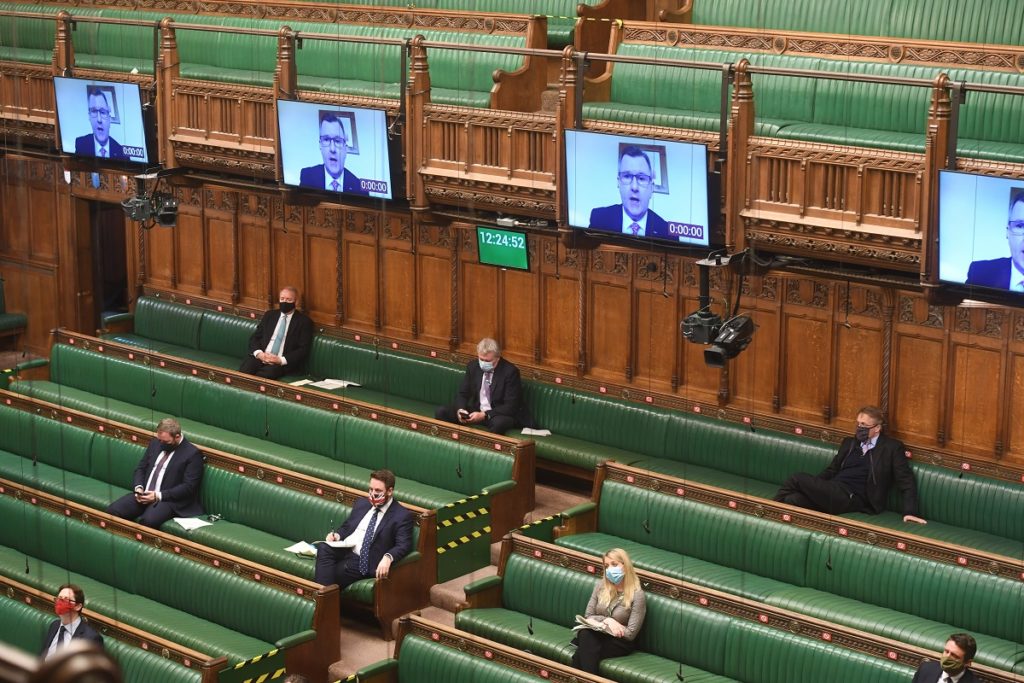The new Chancellor Jeremy Hunt has this morning made a financial statement, outlining the his plans to restore confidence following his predecessors mini budget last month.
The new chancellor is reversing “almost all” tax measures announced in the growth plan three weeks ago. Speaking this morning, Jeremy Hunt said, “We will no longer be proceeding with the cuts to dividend tax rates, the reversal of off-payroll working reforms, the new VAT-free shopping scheme for non-UK visitors or the freeze on alcohol duty rates”.
He added, “The most important objective of our country right now is stability, government’s cannot eliminate volatility in markets, but they can play their part, and we will do so”.
In addition to the reversal of plans for a cut in corporation tax, the new chancellor has now scrapped plans to cut the basic rate of income tax from 20p in the pound to 19p from April next year.. The rate will remain indefinitely at 20p until economic circumstances allow this to be reconsidered.


The government is also no longer committing to its 24 month approach to support for energy prices, stating that it will now review the situation after 6 months. This is the approach taken by the Labour party, and one which had hitherto been regularly criticised by the prime minister herself.
Hunt said that the cut to national insurance will remain, as will cuts to stamp duty.
Speaking ahead of his appearance at the Commons dispatch box later this afternoon, Hunt said, “As I promised at the weekend, our priority in making the difficult decisions that lie ahead will always be the most vulnerable and I remain extremely confident about the UK’s long-term economic prospects as we deliver our mission to go for growth”.
Financial markets have so far reacted positively to the chancellors announcement, one which was not previously expected till the end of October. This morning Sterling has risen against the dollar, and is now trading at just around $1.13. The interest rate, or yield, UK government bonds has also fallen, making government borrowing less expensive.
Speaking on the BBC Breakfast TV programme this morning, the Labour chief secretary to the Treasury, Pat McFadden said: “The reason he [Jeremy Hunt] is doing this is because ministers are terrified of what happens when markets open this morning”, adding, “ It is testament how much chaos has been caused by Liz Truss since she became prime minister”.
The government’s move has though been welcomed by Mel Stide MP, the Chair of the Commons Treasury Committee. Writing on Twitter this morning Mr Stride said, “Strong start by Jeremy Hunt as Chancellor. Gets what needs to be done and is acting fast”.
Today’s announcement comes as the political pressure on Liz Truss further ratchets up. Three conservative MPs have now publicly called for the prime minister to go, and the reversal of almost all of her financial plans will only add to that pressure.
The Conservative MP for Bridgend, James Wallis, revealed on Twitter that he has written to the prime minister calling for her resignation and stating that she no longer has ‘the confidence of the country’.
His letter follows similar public calls by MPs Crispin Blunt and Andrew Bridgen. Mr Bridgen has previously been amongst the first MPs to call for both of Ms Truss’ predecessors to go.
All eyes will now turn to the 1922 committee of Conservative backbenchers, and as to whether rebel MPs will be able to enact a rule change which would allow a new party leader to be challenged within the first year of taking on the post.
It is thought that at least 150 Conservative MPs may have to call for such a rule change, for the executive of the 1992 committee to then consider such a move.
Following the appointment of two members of the 1922 committee’s executive (Nus Ghani and Aaron Bell) to the government last month, there are two vacancies on the executive.
With the vote on replacing these two members not being held until tomorrow, the executive committee itself is not now set to meet till later on Wednesday. It is therefore unlikely that any formal moves against the prime minister will be able to commence until later in the week.
The Conservative party’s position in the polls has worsened from an 11% deficit to one of 24% since the government released its mini budget. As reported on Saturday, the party would lose 234 of their MPs in any election held on this basis.
Conservatives would be down to 131 seats, with Labour gaining Epsom and the Isle of Wight












